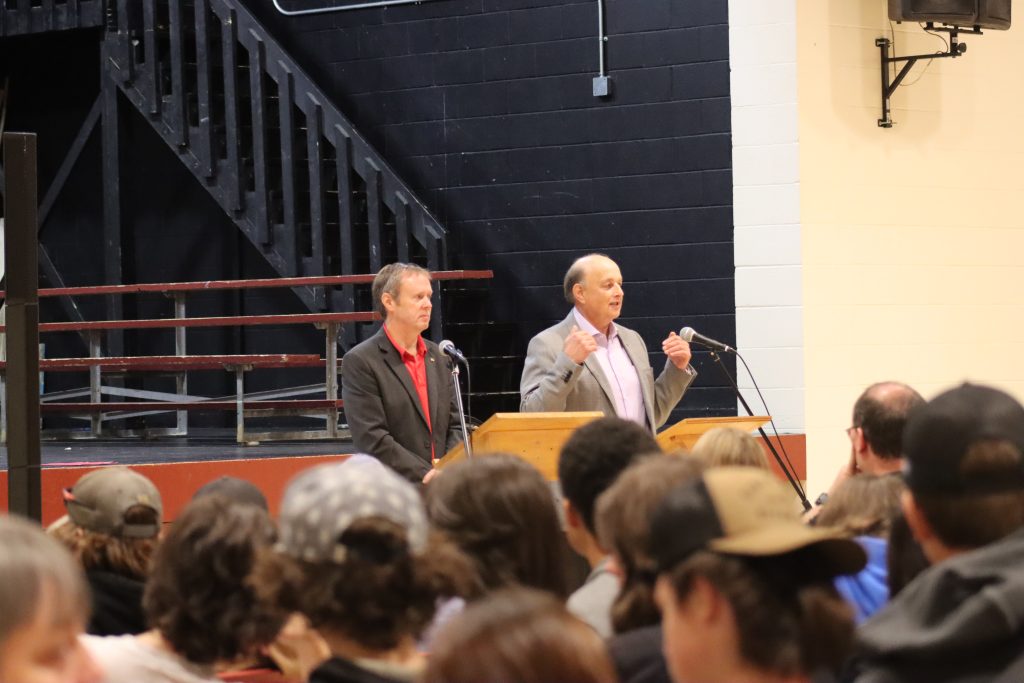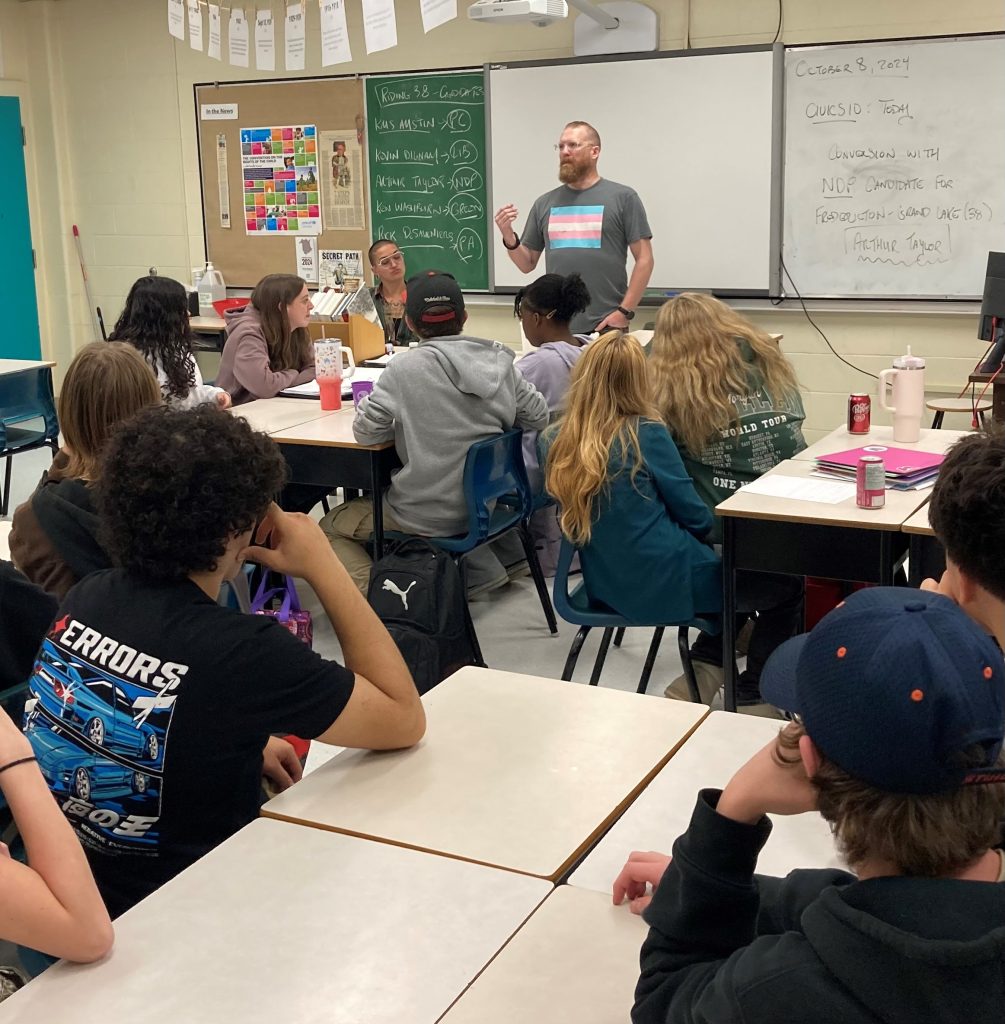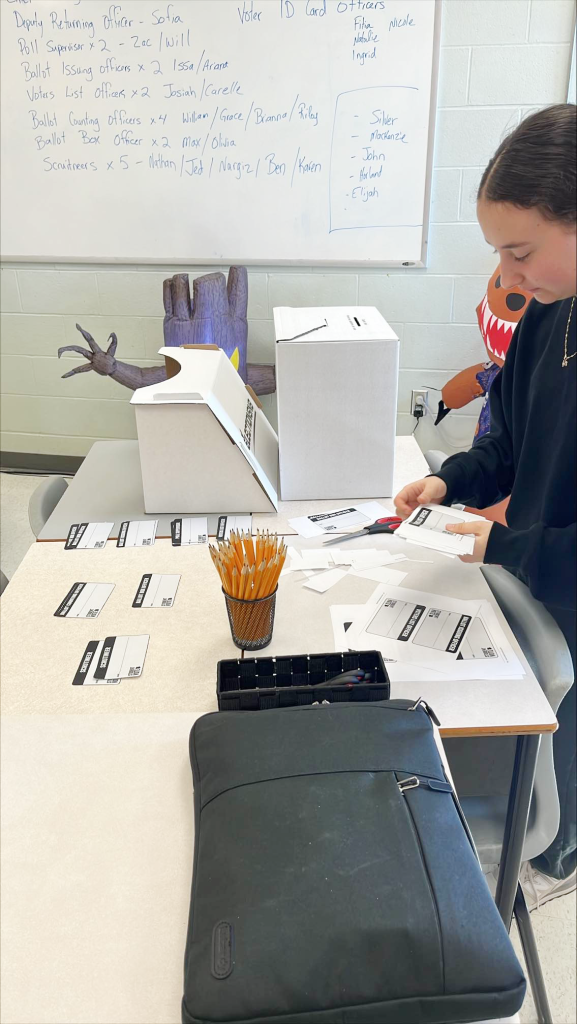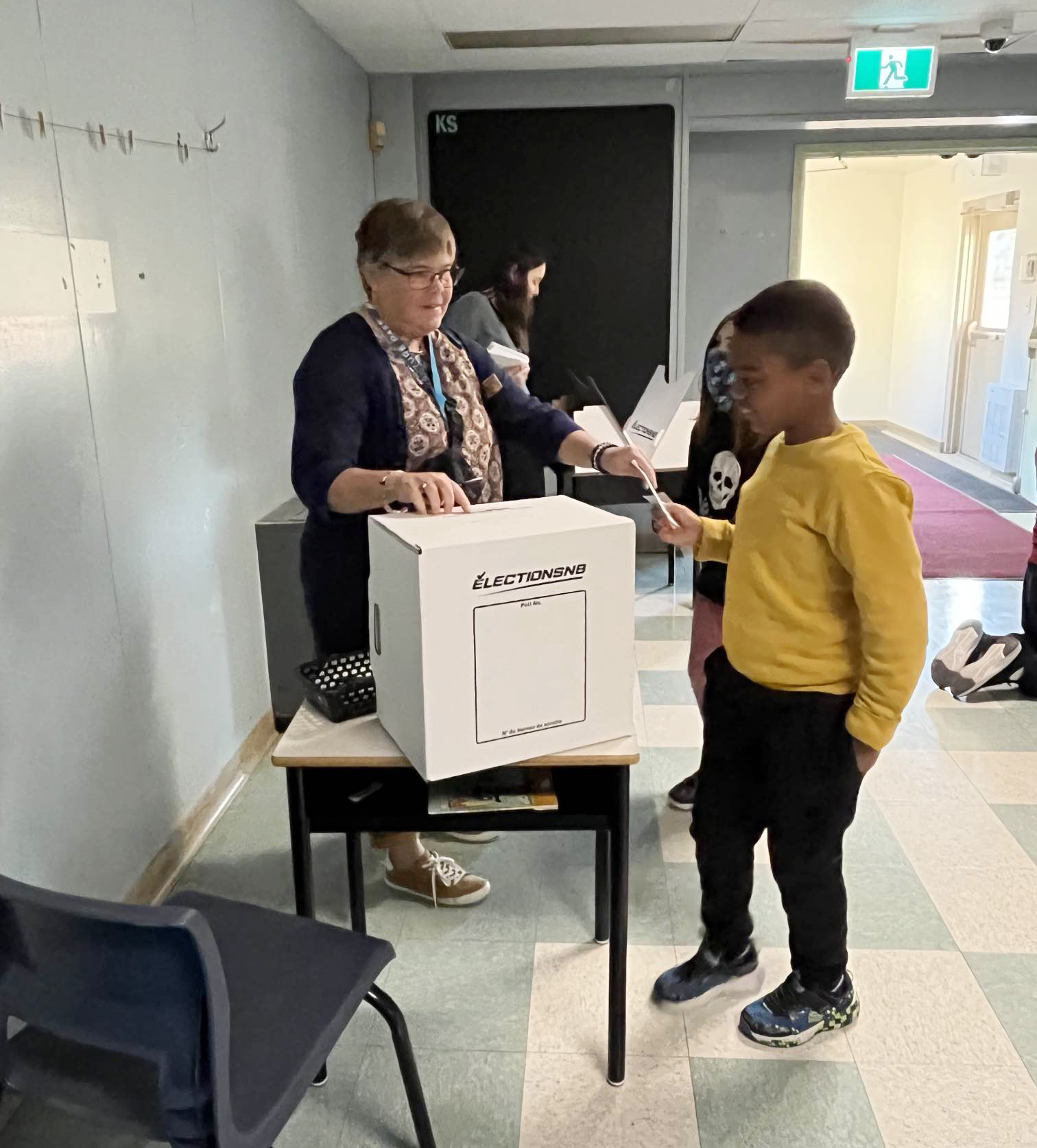
Well, the 2024 provincial election is over, and the winners are… our students!
Thanks to an innovative civics education program called Student Vote New Brunswick, students in ASD-W, and throughout the province, took part in fun, election-education activities over the past four weeks designed to make them informed, critical voters when they get to the polls.
The program, sponsored by CIVIX Canada, provided teachers instructional materials on such electoral subjects as the country’s political parties, the voting process, campaign communications, the leaders’ debate, and post-election analysis.
And to put what they learned into practice, on election day, Oct. 21, students in 62 district schools cast votes in mock elections that mirrored the provincial elections in their regions.

“It’s beneficial to learn about the voting system because my peers and I will be participating in a real vote in just a couple short years,” said Chipman Forest Avenue School Grade 10 student Jacklynn Richards. “We will need to be well educated on the topic to be able to make a responsible decision.”
From the dissolution of the legislature—the process by which the premier halts official legislative business to signal the start of an upcoming election—on Sept. 19, up to the election on Oct. 21, students actively engaged in learning all they could about their local candidates. Several candidates obliged by visiting schools in person, or via video, to discuss their platforms and answer students’ questions.
In the weeks before the election, Chipman Forest Avenue School played host to four of the five candidates running in Electoral District 38, Fredericton-Grand Lake.
“We had Arthur Taylor (NDP) on Tuesday; Kris Austin (PCP) on Wednesday; Kevin Dignam (LP) on Thursday; and Ken Washburn (Green) on Friday,” Chipman Forest Avenue School teacher James Rowinski said. People’s Alliance candidate Rick Desauliniers was unable to attend.
“We had the two local candidates come in to talk with the students and ask questions,” said John Caldwell School teacher Jan Briggs. “It was a wonderful learning experience.”


As part of their crash course in Canadian elections, students also reckoned with the very real issue of how technology and online misinformation can affect their political views. For their lessons on informed citizenship, elementary and middle-school students could view two videos, Behind the Screens: Who decides what I see online? and CIVIX Explains: Algorithms.
High School students were introduced to the concept logical fallacies as part of their introduction to how candidates debate.
“The most important part for me was setting the expectations and letting the students plan and lead all the activities we did, including the school-wide election and democracy workshops with the middle school grades,” said McAdam High School teacher Anthony Daigle.
We had the two local candidates come in to talk with the students and ask questions. It was a wonderful learning experience.
John Caldwell School teacher Jan Briggs
Students did more than learn about elections and vote. The also worked the polls.

“Serving as a ballot officer during the student vote election was a great experience,” said Kaiya Drapeau, a McAdam High School Grade 10 student. “I see myself working in elections one day.”
Chipman Forest Avenue Grade 10 student Marley Hanson also broadened her election perspective after working the student polls: “I’ve learned that it’s a fairly simple process to vote at a polling station. It was also easy to run a polling station, but the only issue I had with running a polling station was that, in order to ensure everyone could vote, you had to run it for so long.”
Becoming an informed voter takes active engagement. It takes work; the sort of work undertaken by ASD-W teachers, staff, and students during Student Vote New Brunswick.
“We need to be the change we want to see in the world and the students need to be the change they want to see in the world,” said Nackawic High School teacher John Powers. “Education about our government and how it works needs to start as early as possible, so that when it comes time to turn over the reins, they can hit the ground running.”

